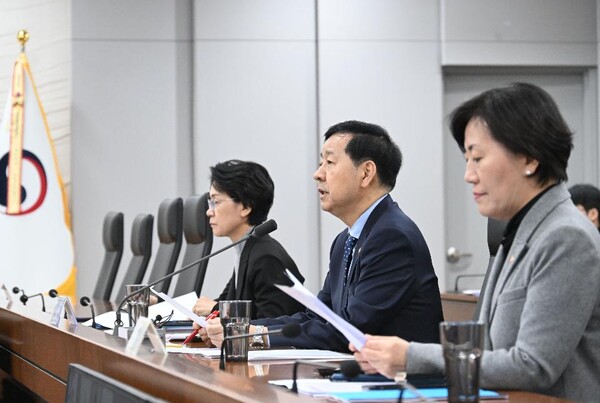Reforms in Procurement Systems Aim to Enhance Local Economies

Twenty-six major public institutions, including Korea Electric Power Corp., will execute 69 trillion won in investments this year, an increase of 3 trillion won from the originally planned 66 trillion won. In response, the government has also decided to significantly overhaul the national contract and public procurement systems to enhance local autonomy and inject vitality into regional economies.
Deputy Prime Minister and Minister of Economy and Finance Koo Yun-cheol said at the economic ministers’ meeting held at the Sejong Government Complex on Nov. 19, “Our economy’s recovery trend has been becoming increasingly clear recently,” adding, “We will thoroughly manage finances so that they can serve as a solid foundation for the economy without loosening our vigilance until the end of the year.” He continued, “The government has supported economic recovery through active fiscal management, including supplementary budgets,” and added, “Central and local governments will work together to minimize carryover and non-execution of budgets and ensure seamless fiscal execution in necessary areas.”
The government has also decided to actively pursue institutional improvements to spread the spark of economic recovery, which is finally showing signs of life, to regional areas. Koo emphasized, “First, we will significantly expand the participation of local construction companies in regional public works projects,” adding, “We aim to expand local companies’ annual contract amounts by 3.3 trillion won and will provide greater preferential treatment to local construction companies in construction contracts.” Specifically, the plan is to expand regional restricted competitive bidding, which is currently limited to local companies for projects under 8.8 billion won (public institution orders) or 10 billion won (local government orders), to projects under 15 billion won, and to strengthen regional economic contribution evaluations based on local company participation rates when selecting successful bidders for comprehensive evaluation lowest bid projects worth 10 billion won or more. Regional balanced development evaluation indicators will also be introduced for technology-type bidding construction projects, where local company participation has not been evaluated previously.
Furthermore, starting next year, the mandatory procurement system for Public Procurement Service unit price contract items will be gradually abolished to enable local governments to efficiently procure goods that match regional circumstances and demands. This is expected to allow local governments to directly review various products and efficiently procure goods suited to regional circumstances and demands. Koo stated, “We plan to apply this pilot program in Gyeonggi Province and North Jeolla Province next year and expand it to all local governments starting in 2027,” adding, “We will support bidding preferences and private contracts for products with artificial intelligence (AI) applications and increase innovative product procurement scale from the current 1 trillion won to more than 2.5 trillion won by 2030.”


